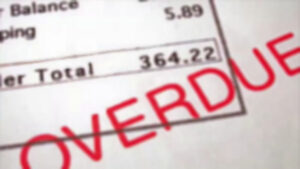Whether credit control is managed in-house or outsourced, it’s an understated practice that’s often only maximised when a business enters crisis mode.
If a large client fails to pay their invoice on time, or a persistent late payer raises an unwarranted payment dispute, credit control is often widely used for crisis management, rather than for the prevention of bad debts.
Karl Hodson of UK Business Finance explains why credit control is more than a crisis management tool and how it can be used to get company finances into shape.
What is Credit Control?
Credit control is a process to check that money owed to the business is paid in a timely manner . It protects the business from the risk of non-payment or late-payment and can take many forms, from payment reminders, strict credit terms to bespoke payment invitations.
The purpose of credit control is to mitigate the risk the business is exposed to and instil a respectable payment arrangement between both parties. This can range in complexity, from payment reminders to intervention from a debt collection agency once the payment is overdue by a specified period of days.
Here are some examples of credit control processes:
Payment reminder templates: Credit control systems including accounting software with credit control capabilities often offer payment reminder templates to send personalised chasers to late payers.
Personalised payment links: A direct link to the payment portal means that customers don’t have to wait for payment details to be forwarded to them. The link will populate information, such as the amount due and a breakdown of the services provided to prevent delays.
Debt collection: If a payment goes unpaid for a long period and therefore, it’s unlikely to be paid, also known as bad debt, you may appoint a debt collection agency to intervene on your behalf to collect the debts.
According to Xero’s Small Business Index, UK invoices are paid significantly later (8.2 days) than they are in Australia (6.5 days) and New Zealand (6.2 days), the highest late payment time since August 2020 which means that businesses are out of pocket for longer as a result of late payers.
A robust credit control strategy can prevent bad debts and drive down the number of days businesses wait for payments. Agree on payment terms beforehand, provide all the information that the customer requires to make a payment, reinforce this with a payment reminder, and then acknowledge the payment once made.
Credit control – a lifeline in a crisis
If a business is dependent on cash from a high value invoice to pay staff wages and cover essential bills, the alarm bells will ring fiercely if the payment falls late. Although it’s best practice to divide the risk across several clients, rather than to put your eggs into one basket, this is a common problem experienced by small businesses.
Use credit control systems to double down on late payers – flag the late payment, reiterate the terms of the agreement and the consequences, such as interest and debt recovery intervention. Credit control can present a lifeline in a crisis, but to prevent the subsequent crisis – use it to prevent bad debts.
Karl Hodson is a commercial finance expert at UK Business Finance, part of Begbies Traynor Group
Read more:
Credit control and why it’s more than a crisis management tool
























